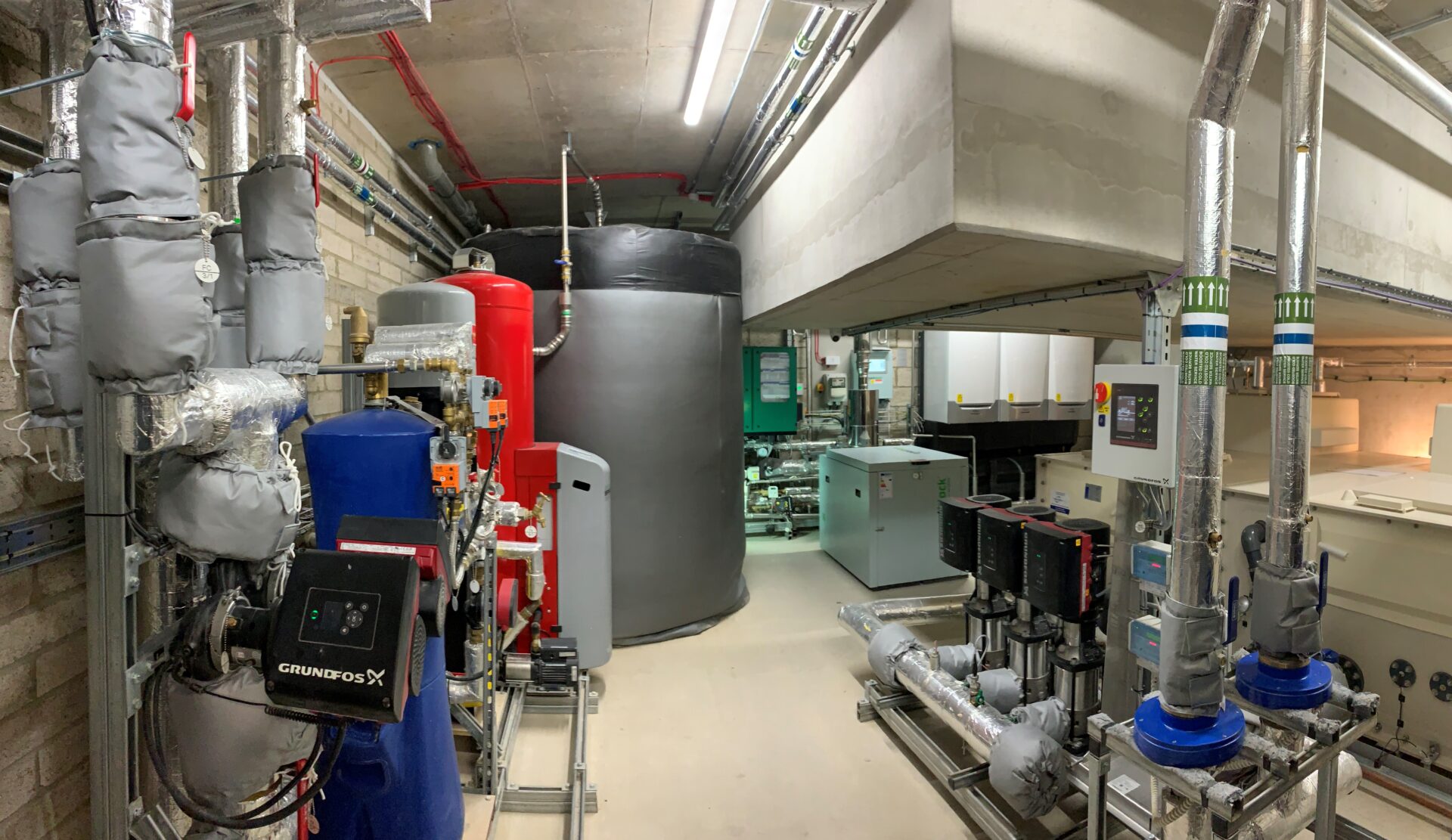Plant room Feasibility Studies
Running & maintaining a commercial UK plant room today costs FM companies and stakeholder/owners a lot of money.
So why wouldn’t you look to spend some time to ensure the equipment you have is running as effectively and efficiently as possible in order to save valuable energy and even look to make you money in return?

Here at Helec we can provide full feasibility studies for all commercial & industrial plant room / energy centres. We provide detailed reports outlining the efficiency of the system you currently have and suggest what you may need to enhance the sites efficiency, all the design criteria to be considered and the all important budget costings required to deliver the expected savings taking you forward.
Most feasibility studies need to examine several factors in order to determine the suitability and cost effective solution for the best system at your premise. At Helec we can conduct a full feasibility study to determine the best system required, the potential return on investment, the costs and the much talked about “green” carbon savings!!
The Helec team can assist with this feasibility study whether it is for a new build design, or a retro-fit enhancement to an existing plant room, as we are able to use our energy report calculator tool to establish how much potential energy can be generated by a sized CHP system and what valuable costs will be saved going forward.
- In order to ascertain the best sized CHP unit we require some basic information such as;
Information on your business (including operating hours, size, layout and location).
Previous Gas bill (1 month minimum, 12 months if available).
Previous Electricity bill (1 month minimum, 12 months if available).
30 minute interval data for electricity (if available from your energy provider).
60 minute interval data for gas (if available from your energy provider)
Details of support boilers in kW (hot water and pool heating).
Details of water heaters used for LTDHW (low temp domestic hot water)
(Note: If it is a new build project at design stage, or under construction, we would look to use the theoretical thermal modelling figures based on the heat loss calculations and expected hot water demands normally obtained from energy modelling programmes via SBEM or BREEAM)
With this information we will be able to show the size of CHP, its expected run hours per year and show the Co2 savings and more importantly the fuel costs saved by using a co-generation process which will look to reduce the on-site electricity bills.
Contact us today to request a CHP feasibility study or read more below.
Electricity Demand
We will conduct a full electricity consumption study (if required) to determine the KW energy use of your site. This gives us a clear picture of the size of cogeneration plant required to run your premises.
Heat Demand
Heat demand is one of the largest determining factors of the suitability of CHP for your premises. CHP works best where there is a constant demand for heat. Typically, 4,500 hours of high or constant heat demand is needed to make CHP economical but bear in mind that this figure changes with the size of system, building and frequency of heat demand.
Plant Room Size and Location
Plant room size and location determines the size of cogeneration plant that is possible at your location and the ancillary pipework, ductwork, boilers et al that can be included. We will analyse your plant room size and location to determine the feasibility of installation.
Specification
With the information on plant room, heat and electricity demands we are able to specify a plant room type, design and generator that will provide a sufficient level of heat and power to your location.
Costs of System
Once a specification is made we will provide details of a number of suitable systems that will provide sufficient CHP for your location. There are variances in heat and power output between similarly sized systems and, of course, cost variances. We will provide you with a number of suitable options where available.
Cost of Installation
If required we can provide estimated costs of installation. We also provide pre-packaged plant rooms built in our manufacturing plant to decrease the amount of hot works required on-site and reduce disruption caused by installation.
Period to Return on Investment
The time to return on investment is one of the core feasibility factors. Typically our CHP systems provide an expected time to return of 2.5 -6 years. The CHP system return on investment is determined by a wide number of factors including size and usage of the system.
Carbon Savings
Though not critical to feasibility from an energy and heat production standpoint carbon savings have a big impact on whether CHP systems are used. Energy use is reduced by as much as 40% which offers substantial carbon savings versus regular electricity generation.
If you require a CHP feasibility study please don’t hesitate to get in touch with us to discuss your project. We are happy to provide consultation or to book in a feasibility study of your site. We work with specifiers, builders and project managers and will make it simple for you to find the right CHP system for your next project.
